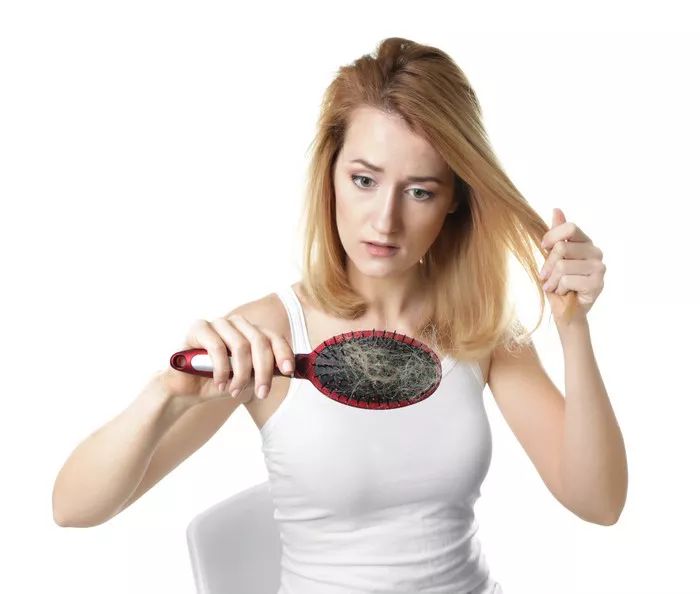vAre you one of the many individuals who have undergone Vertical Sleeve Gastrectomy (VSG) and are now experiencing the distressing issue of hair loss? You’re not alone. Hair loss after VSG is a common concern that many patients face, but the good news is that there are effective strategies to address and mitigate this problem. In this comprehensive guide, we will delve into the causes of hair loss after VSG and provide you with a range of actionable steps to help you stop hair loss and promote healthy hair growth. Let’s embark on this journey to regain your lustrous locks!
What is VSG?
Vertical Sleeve Gastrectomy (VSG), commonly referred to as a sleeve gastrectomy or gastric sleeve surgery, is a bariatric surgical procedure used to assist individuals in achieving weight loss. During VSG, approximately 80% of the stomach is removed, leaving behind a banana-shaped “sleeve” or tube-like structure. This reduction in stomach size limits the amount of food that can be consumed, leading to reduced calorie intake and subsequent weight loss. VSG is often chosen by individuals seeking a minimally invasive weight loss solution that can improve overall health and combat obesity-related conditions like diabetes and hypertension. It’s crucial to understand the potential side effects and long-term dietary changes associated with VSG before undergoing the procedure.
Understanding Hair Loss After VSG
It’s essential to recognize that experiencing hair loss after VSG surgery is relatively common. This phenomenon, often referred to as “post-bariatric surgery hair loss,” can be attributed to various factors, including rapid weight loss, changes in nutrient absorption, and hormonal fluctuations.
After VSG, your stomach’s reduced size can limit the amount of nutrients your body can absorb from food. Nutrient deficiencies, particularly in iron, biotin, zinc, and protein, are frequently associated with hair loss. To combat this, consult with your healthcare provider and consider taking recommended supplements to replenish these vital nutrients.
Strategies to Prevent and Stop Hair Loss After VSG
Here are strategies to prevent and stop hair loss after VSG:
1. Balanced Diet and Nutrition:
A well-balanced diet plays a pivotal role in maintaining healthy hair. Focus on consuming foods rich in protein, such as lean meats, fish, and dairy products. Incorporate fruits, vegetables, and whole grains to provide essential vitamins and minerals. Work with a nutritionist to create a personalized meal plan tailored to your post-VSG needs.
2. Supplement Smartly:
In addition to a healthy diet, taking supplements can help address nutrient deficiencies. Biotin supplements, in particular, are known for their positive impact on hair health. Consult with your healthcare provider to determine the appropriate dosage of biotin and other supplements for your specific case.
3. Hair Care and Scalp Health:
Proper hair care is crucial in preventing further hair loss. Use gentle, sulfate-free shampoos and conditioners to avoid excessive hair damage. Scalp massages with essential oils like lavender or rosemary can stimulate blood circulation and promote hair growth. Be gentle when detangling and styling your hair to minimize breakage.
4. Stress Management:
Stress is a known contributor to hair loss. Post-surgery, it’s natural to experience stress related to lifestyle changes and adjustments. Engage in stress-reduction techniques such as meditation, yoga, or deep breathing exercises. Getting adequate sleep is also essential for overall well-being and hair health.
Monitoring and Seeking Professional Help
Consistent follow-up appointments with your healthcare provider are crucial. They can monitor your nutrient levels and make necessary adjustments to your supplement regimen. If your hair loss persists, they may recommend additional tests to identify underlying causes.
If your hair loss is severe or doesn’t improve with dietary changes and supplements, consult a dermatologist who specializes in hair disorders. They can evaluate your condition and recommend targeted treatments such as topical solutions or low-level laser therapy.
See Also: How to Shower and Not Wash Your Hair: A Comprehensive Guide
Conclusion
Hair loss after VSG surgery is a challenging but manageable issue. By understanding the underlying causes and adopting a holistic approach that includes nutrition, supplements, proper hair care, and stress management, you can take proactive steps to stop hair loss and promote the regrowth of your hair. Remember that patience is key, as it may take several months to see significant improvements. Consult with healthcare professionals who can provide personalized guidance to ensure your journey to healthier, fuller hair is a successful one. Don’t let hair loss hold you back from embracing the transformative benefits of VSG surgery; take control of your hair health today!


